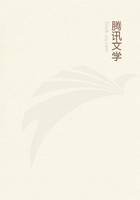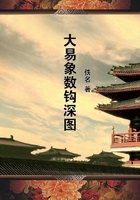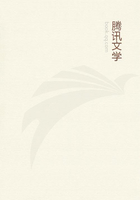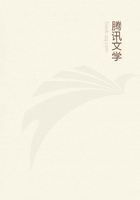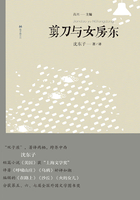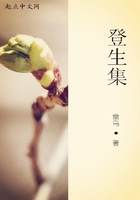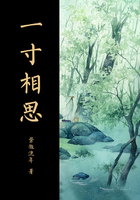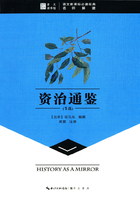I have judged it right to mention this, because some are of opinion that charity or regard (dilectio) is one thing, love (amor)another.They say that dilectio is used of a good affection, amor of an evil love.But it is very certain that even secular literature knows no such distinction.However, it is for the philosophers to determine whether and how they differ, though their own writings sufficiently testify that they make great account of love (amor) placed on good objects, and even on God Himself.But we wished to show that the Scriptures of our religion, whose authority we prefer to all writings whatsoever, make no distinction between am.or, dilectio, and caritas; arid we have already shown that amor is used in a good connection.And if any one fancy that amor is no doubt used both of good and bad loves, but that dilectio is reserved for the good only, let him remember what the psalm says, "He that loveth (diligit) iniquity hateth his own soul;"(3)and the words of the Apostle John, "If any man love (diligere) the world, the love (dilectio) of the Father is not in him."(4)Here you have in one passage dilectio used both in a good and a bad sense.And if any one demands an instance of amor being used in a bad sense (for we have already shown its use in a good sense), let him read the words, "For men shall be lovers (amantes) of their own selves, lovers (amatores) of money."(5 The right will is, therefore, well-directed love, and the wrong will is ill-directed love.Love, then, yearning to have what is loved, is desire; and having and enjoying it, is joy; fleeing what is opposed to it, it is fear; and feeling what is opposed to it, when it has befallen it, it is sadness.Now these motions are evil if the love is evil; good if the love is good.What we assert let us prove from Scripture.The apostle "desires to depart, and to be with Christ."(1) And, "My soul desired to long for Thy judgments;"(2) or if it is more appropriate to say, "My soul longed to desire Thy judgments." And, "The desire of wisdom bringeth to a kingdom."(3) Yet there has always obtained the usage of understanding desire and concupiscence in a bad sense if the object be not defined.But joy is used in a good sense: "Be glad in the Lord, and rejoice, ye righteous."(4) And, "Thou hast put gladness in my heart."(5) And, "Thou wilt fill me with joy with Thy countenance."(6) Fear is used in a good sense by the apostle when he says, "Work out your salvation with fear and trembling."(7)And, "Be not high-minded, but fear."(8) And, "I fear, lest by any means, as the serpent be-Culled Eve through his subtilty, so your minds should be corrupted from the simplicity that is in Christ."(9) But with respect to sadness, which Cicero prefer to calls sickness (oegritudo), and Virgil pain (dolor) (as he says, "Dolent gaudentque"(10)), but which I prefer to call sorrow, because sickness and pain are more commonly used to express bodily suffering,--with respect to this emotion, I say, the question whether it can be used in a good sense is more difficult.
CHAP.8.--OF THE THREE PERTURBATIONS, WHICH THE STOICS ADMITTED IN THESOUL OF THE
WISE MAN TO THE EXCLUSION OF GRIEF OR SADNESS, WHICH THE MANLY MINDOUGHT NOT TO
EXPERIENCE.
Those emotions which the Greeks call eupaqeiai, and which Cicero calls constantioe, the Stoics would restrict to three; and, instead of three "perturbations" in the soul of the wise man, they substituted severally, in place of desire, will; in place of joy, contentment; and for fear, caution; and as to sickness or pain, which we, to avoid ambiguity, preferred to call sorrow, they denied that it could exist in the mind of a wise man.Will, they say, seeks the good, for this the wise man does.
Contentment has its object in good that is possessed, and this the wise man continually possesses.Caution avoids evil, and this the wise man ought to avoid.But sorrow arises from evil that has already happened; and as they suppose that no evil can happen to the wise man, there can be no representative of sorrow in his mind.According to them, therefore, none but the wise man wills, is contented, uses caution; and that the fool can do no more than desire, rejoice, fear, be sad.The former three affections Cicero calls constantioe, the last four perturbationes.
Many, however, calls these last passions; and, as I have said, the Greeks call the former eupaqiai, and the latter paqh.And when I made a careful examination of Scripture to find whether this terminology was sanctioned by it, I came upon this saying of the prophet: "There is no contentment to the wicked, saith the Lord;"(11)as if the wicked might more properly rejoice than be contented regarding evils, for contentment is the property of the good and godly.I found also that verse in the Gospel:


